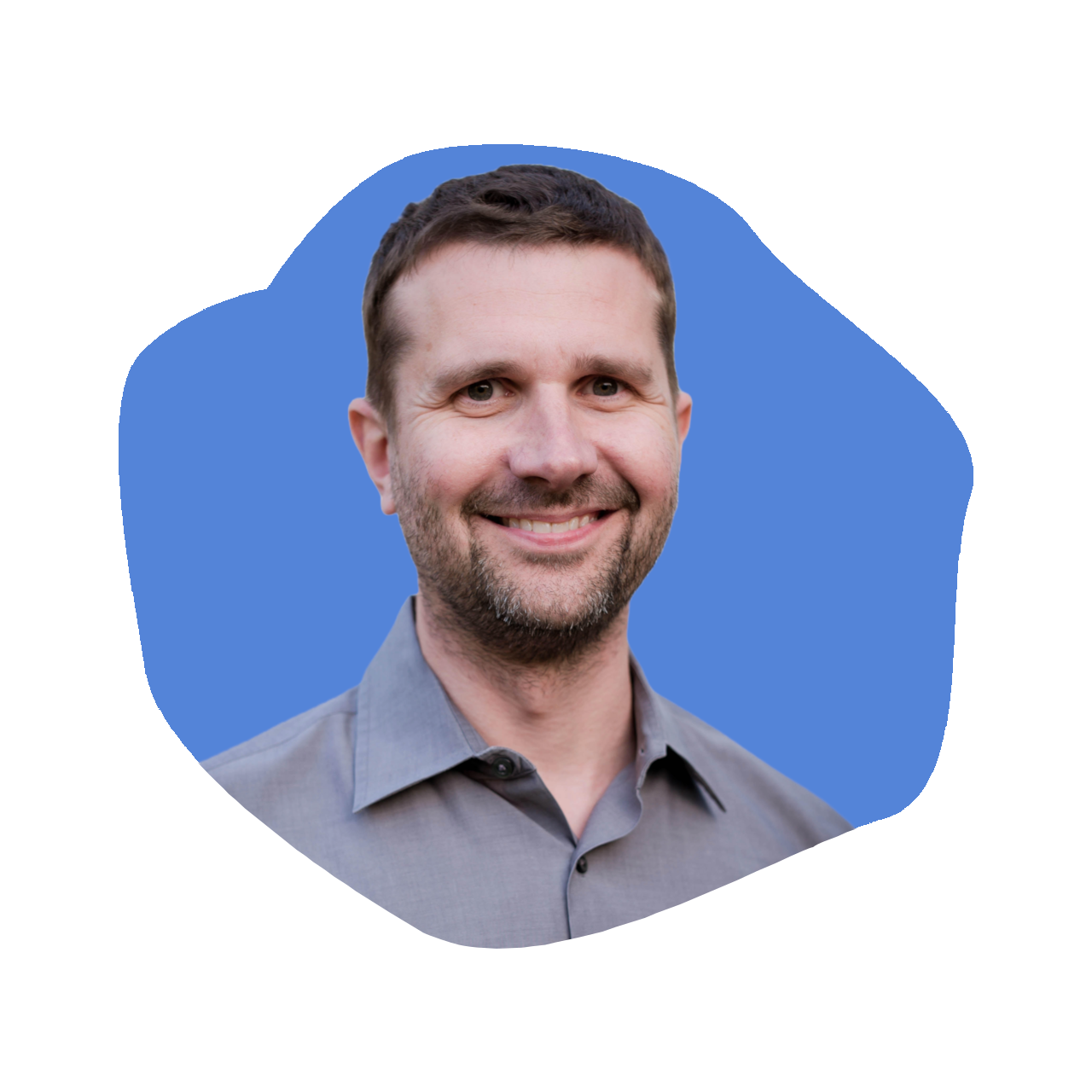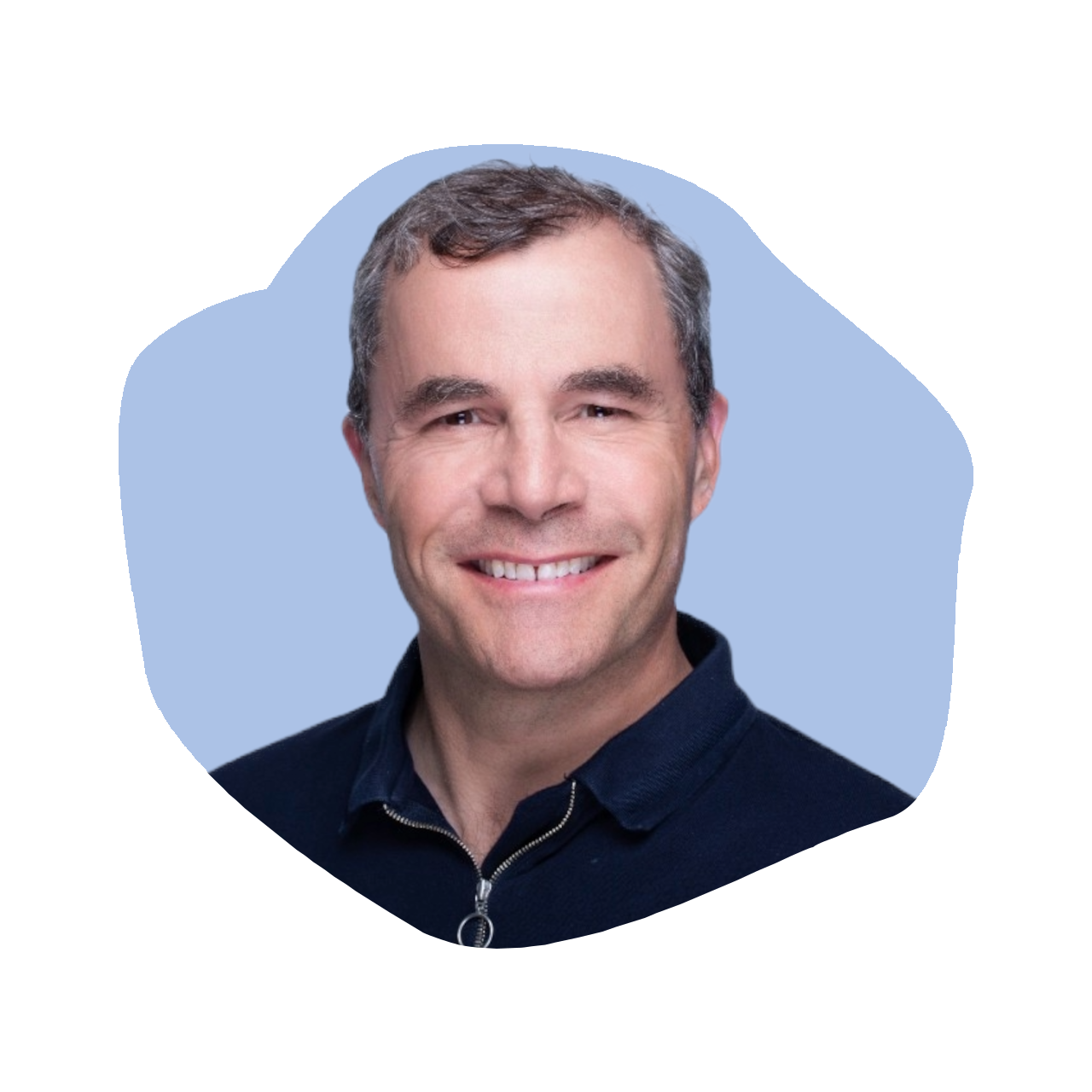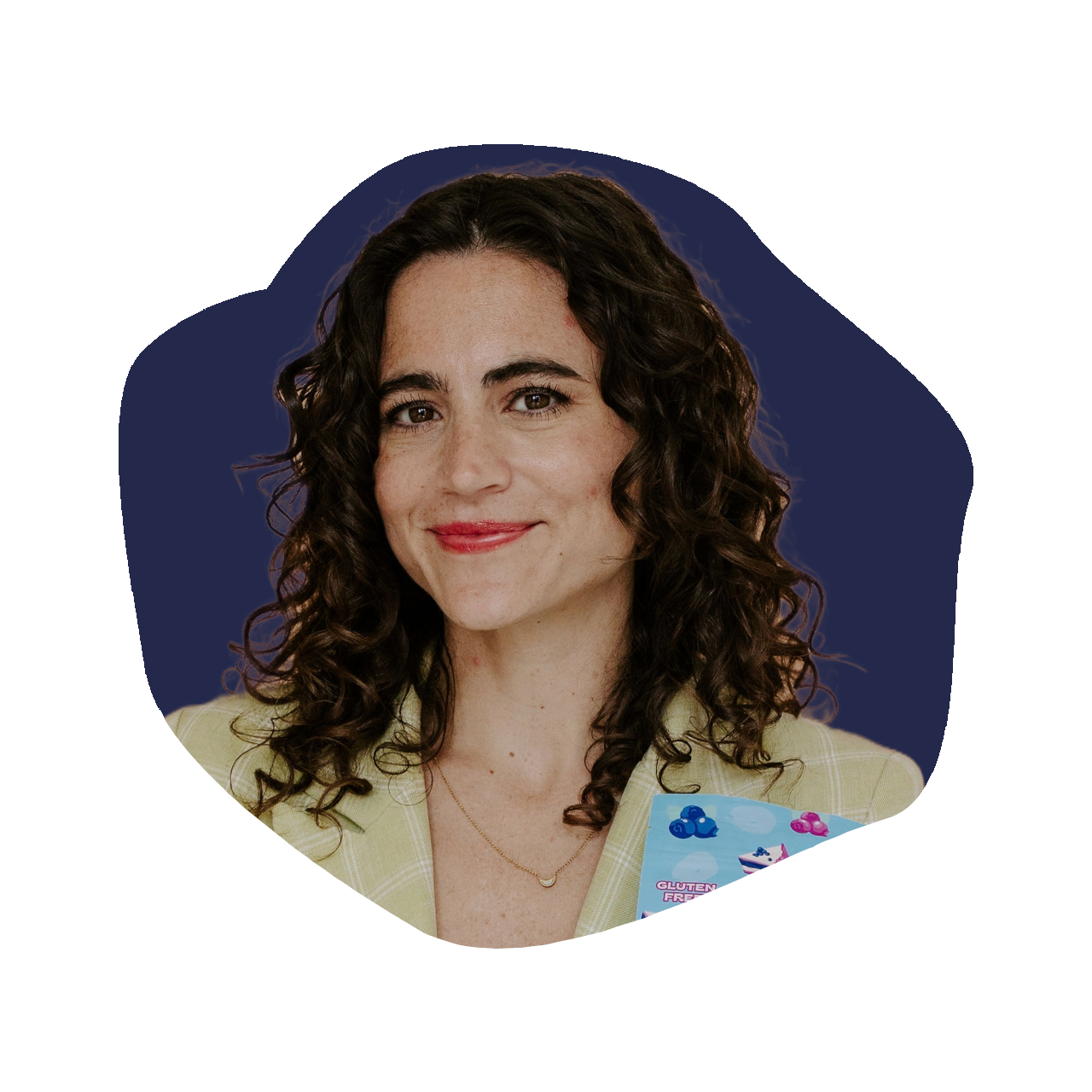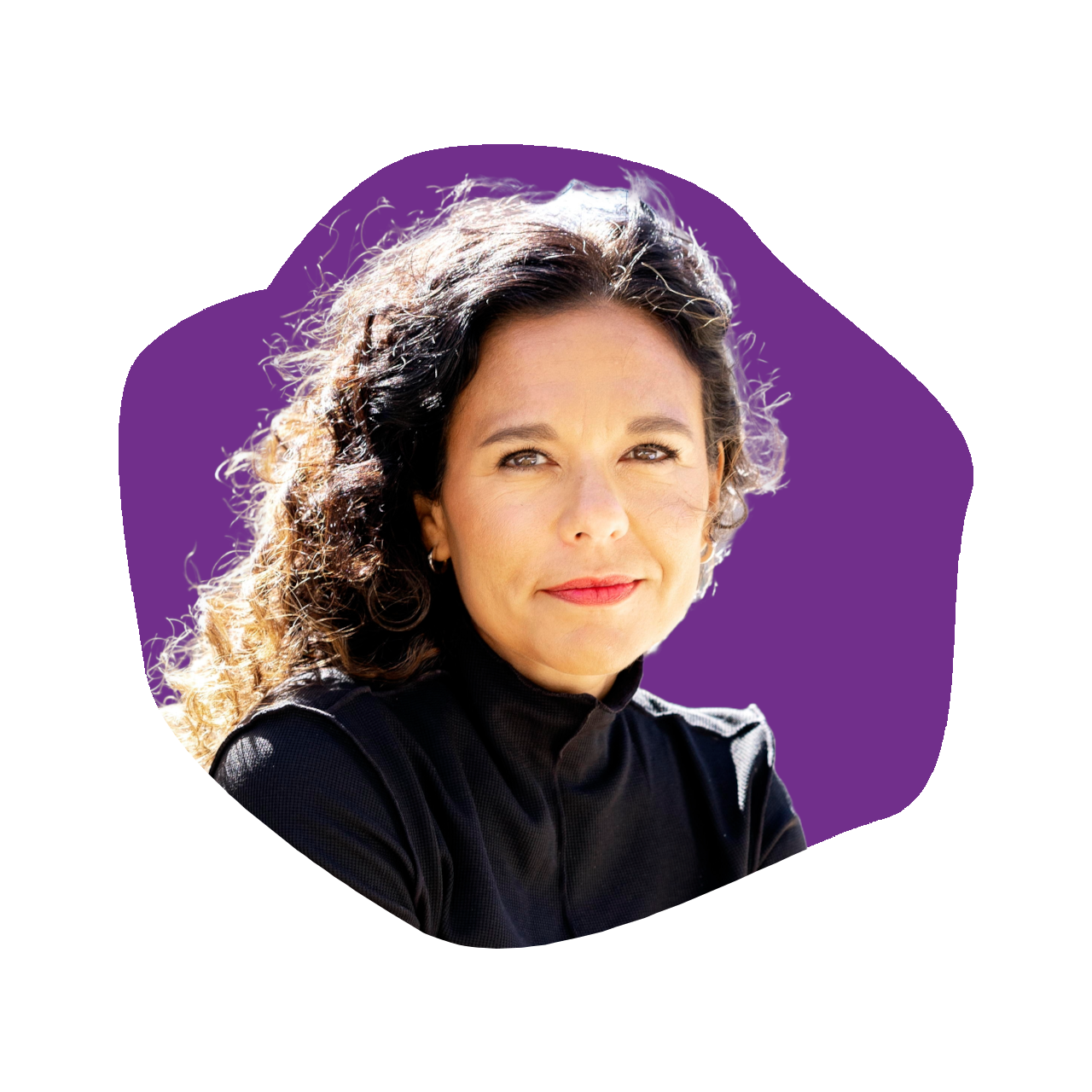Shiza Shahid – Founder of NOW Ventures, Founding CEO of the Malala Fund, and Co-founder of Our Place
Episode 60
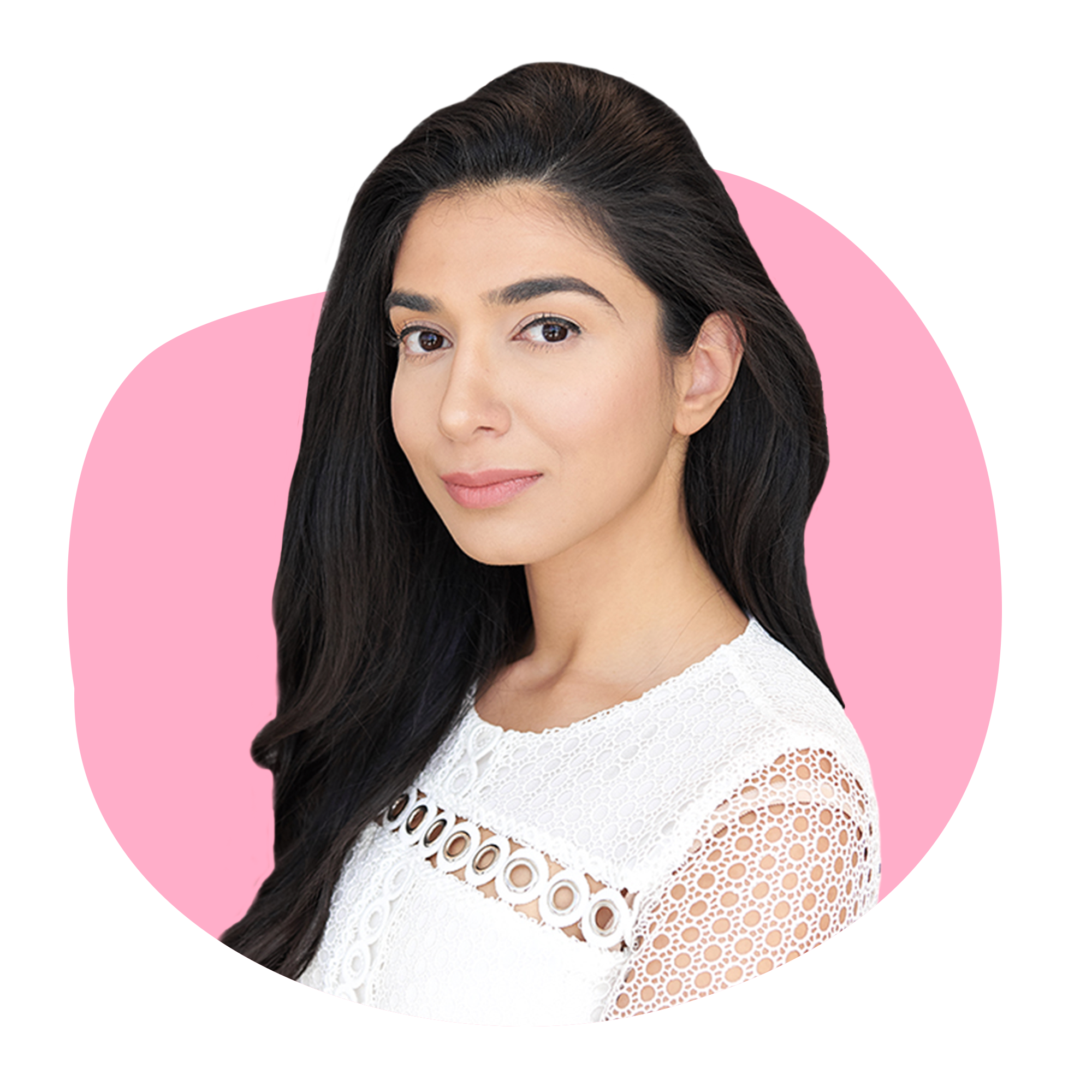
Resources from
this episode:
Enjoying this episode of #TheKaraGoldinShow? Let Kara know by clicking on the links below and sending her a quick shout-out on social!
Follow Kara on LinkedIn – Instagram – X – Facebook – TikTok – YouTube – Threads
Have a question for Kara about one of our episodes? Reach out to Kara directly at [email protected]
Transcript
Kara Goldin: Hi everybody. It’s Kara Goldin from Unstoppable with Kara. And I’m here today with Shiza. Hi, Shiza. How are you?
Shiza Shahid: Hi, Kara. I’m excited to be here.
Kara Goldin: Yeah, you too. So this is Shiza Shahid, and she is a friend and just an awesome, awesome entrepreneur. Just a little bit more about her, she’s also somewhat recently eight months the co-founder of a company called Our Place, which is an amazing, amazing company that in many ways I can’t believe anybody was not doing this before. So we’ll let her tell you a little bit more about this. She’s also the founder of NOW Ventures and the founding CEO of the Malala Fund. So very, very exciting. So just a little bit more about her. I mean, as I mentioned, she’s an entrepreneur, an investor, a speaker, also a women’s rights advocate who is out speaking still to this day about lots of amazing stuff that more and more women and men need to really know about. She’s passionate about leveraging philanthropy, venture capital, technology, to just really drive scalable social impact.
I mentioned that she co-founded the Malala Fund and led the organization as founding CEO. And she’s just this amazing… What else could I tell you? The Times’ Under 30 World Changer, Forbes 30 Under 30, social entrepreneur, WEF Global Agenda Council. Wow. I mean, this is amazing. Some things I did not even know about you. I mean, this is super, super great. Based in LA. And also I know her husband, Amir, too and cofounder, correct? For Our Place and very, very thrilled to see these guys doing it. So again, welcome, Shiza, very happy to have you here. So I want to talk a bit about all the amazing things that you’re doing and have done, but first, can you take us back to the beginning? Where do you think the drive for really social change came from? I read that at only 13, you were volunteering at the prisons in Pakistan. Is that… Wow.
Shiza Shahid: Yeah. Thank you, Kara, for having me. I’m such a huge fan of yours, and I see you as someone that I look up to and someone who has built a really amazing business, a really amazing platform for inspiring others to follow their dreams. And personally, I know every time I ever reached out to you to ask for any advice or for an intro, you always respond immediately and are always so helpful.
Kara Goldin: Oh, awesome.
Shiza Shahid: And that means a lot to me. So thank you for being you. And yes, you’re right. I started early in wanting to make an impact. I was born into a modest family in Pakistan, and I grew up there until I was 18 years old. And it was very clear to me that the opportunities that I had, since my parents wanted me to have every opportunity in the world, were different from the opportunities that most women in Pakistan had. Pakistan is ranked the second worst place to be born a woman in the world. The US is not where it should be either. It’s 51 out of 144 countries. So a lot of work to be done here as well.
But in my home country, when I was growing up, it was very clear to me that women and girls were often denied the opportunities that every human deserves. And I wanted to understand why and how to make sense of it all. And so I ended up volunteering at a young age in nonprofits that would give me a chance really, and that included nonprofits working in women’s prisons, in microfinance and micro enterprise, in girls’ education. And over and over again, what I saw was if you empowered a woman to earn a dollar, she would invest 80% to 90% back into her family and community. It was typically 30 to 40% for men. So if there’s a silver bullet in ending poverty, it really is economically empowering women.
Kara Goldin: Wow. That’s amazing. So the prison, how did you connect with that?
Shiza Shahid: So there was a nonprofit that would set up medical camps-
Kara Goldin: Oh, wow.
Shiza Shahid: For women who were in prison. That particular prison didn’t have a female doctor, so many of the women wouldn’t come forward with the health challenges they were experiencing. So they would send over women health workers a couple of days a month to go in and see the women and provide consultations, provide basic medications and treatments. And I still remember… This was one of my earliest experiences doing social work. I went into this prison, and there were all these women, and then there were all these children. And I learned that these were children who had been born to women who were incarcerated. And since there isn’t a robust social services system in Pakistan, these children often had nowhere to go and were just sort of allowed to grow up in prison with their mothers. And it was the first time I experienced what it must feel like to be essentially discarded before you’re even born, to really be born without any real chance of pursuing your dreams.
So these experiences gave me a lot of insight into what it means to be human and to be born into circumstances that vary widely and how those circumstances play into the opportunities we have and who we are able to become and also into the privilege that I had as a woman who did get to go out into the world and build a big career and have these networks and connections that can lead to real change. Those memories, those experiences are things that always stay with me and really guide me in everything that I do.
Kara Goldin: It’s interesting listening to you speak about this because I always think that someone’s journey is… Maybe it sounds cliche, but it’s yours, and it’s impactful. But that’s the thing when I’ve heard you speak, it’s being able… I love that you’ve told those stories because I think that it’s just so important for the rest of the world to know these things. And you’ve obviously got statistics on sort of where women are in these different countries, and it’s not great. As we talk about the US, I mean, clearly we’ve got our challenges, but I think it’s also you not only are talking about your different journey along the way, but I think it also helps people to also speak about theirs too and just be more open more than anything else. So can you tell us about how you came to start the Malala Fund?
Shiza Shahid: Yeah. So that’s also a story that began long before it really began, going back to my roots in Pakistan and the work that I had done there. I was fortunate to get a scholarship to Stanford when I was 18 years old, moved to the United States, got bitten by the startup bug, really started to think about how do you build startups and businesses that actually make the world better and solve real challenges? When I graduated from Stanford, took my first job out of college at McKinsey and asked them to move me out to the Middle East and sort of had this big career plan where I would do the McKinsey thing and do a fancy business school and then build my own thing. And that sort of turned upside down about a year into my time at McKinsey when Malala was shot.
And for context, I had reached out to Malala when I was 19 at Stanford. She was 11. And at the time, she had been speaking up for girls’ education in her community. She comes from a part of Pakistan that’s dealt with a lot of challenges. It’s dealt with terrorist attacks. It’s quite different from the city that I grew up in, which is a little bit more cosmopolitan. And I had noticed her voice, her story, and her father’s work. And I had reached out to them and brought her and her father and 26 other advocates like her to essentially a secret summer camp I created the sophomore year of my time at Stanford for girls who wanted to share their stories in a way that could bring real change. And my goal was simple. It was let’s give these girls the tools, resources, networks, mentors that I have. At the time, I was in a class of 20 students with Condoleezza Rice. I had gone from being this girl born in Pakistan with limited opportunities to now having this global education, this global network. And I felt well, how do I give some of those opportunities to girls in my part of the world who haven’t yet gotten scholarships to study in the United States?
And so I created the summer camp, and that’s where I first became quite close to Malala and her family. And so when she was shot, this was about four years later, and I was very devastated by what had happened, immediately went to be with her and her family. And as she recovered miraculously, I felt there was an opportunity to help share her story in her own words and to make this really horrible thing that had happened count for something good and to use this as a moment to wake people up to the challenges in girls’ education. So ended up quitting my job at McKinsey, moving to New York with a suitcase and starting the Malala Fund with Malala and her father when I was 22 years old.
And it was this really incredible journey. I got to lay the foundations of an organization that’s now one of the most significant champions of girls’ education and has really far reaching impact. It made me a storyteller. It made me a builder, an entrepreneur. And when I was 24, I was at the Nobel Peace Prize with Malala. So it really sort of-
Kara Goldin: Amazing.
Shiza Shahid: Showed me what’s possible. And from that, I was able to build and do the next things that I did and really take what I learned about the nonprofit world, but then try to apply that to investing and to building my own business.
Kara Goldin: Did you ever think when you were starting this, when you reached out to Malala and said, “Let’s go tell this,” did you ever think it would be that you would be sitting there alongside her for the Nobel Peace Prize? Did you ever really think okay, here’s…” When I talk to entrepreneurs and I hear them talk about the business as okay, I’m going to build this, and then two years from now, we’re going to flip it or we’re going to make billions, they’re missing kind of the purpose and sort of the reason and sort of starting at the roots and the build and the whole thing. And it doesn’t matter if you’re a nonprofit or if you’re an entrepreneurial company like Our Place. But my guess is that you didn’t think that it was going to be this big. You wanted to tell the story. It started with a purpose.
Shiza Shahid: When I started it, I had no idea that anybody would care. And people really, at the beginning they saw this as a tragedy. They didn’t see this as a movement. And that was a very unlikely thing. However, as we started to build, the magnitude did dawn on me, and I remember… My husband actually tells this story, that on our first date, he said, “You’re from Stanford and McKinsey, and now you’ve switched back to the nonprofit world. What’s the point? What are you trying to do with this? Where do you want to end up with this?” And he says that I turned to him, and I thought about it, and I said, “If I do my job really well, in 20 years, Malala and the Malala Fund will win the Nobel Peace Prize.” And then it happened later that year. So on the one hand, yes, starting out I was just trying to get the story out there. And then as we built and built, the magnitude did become clear that what we were doing was really resonating, but it didn’t change anything. You just sort of keep doing the same thing, one foot in front of the other and just trying to get it right and do the right thing.
Kara Goldin: So you and I have talked a bit about Our Place and your newest startup that is eight months old and going gang busters. Very, very excited for you guys. So tell me and tell our audience, I mean, togetherness is really the central voice for Our Place, but just talk a little bit more about this.
Shiza Shahid: Yeah. So I met my husband a couple of years ago, and as we started to build our home in Los Angeles, we were both immigrants. He grew up here, but he’s Iranian American. I grew up abroad. And we both really built our communities by cooking food for people, having them over, sharing stories, sharing our traditions, sharing our cuisines and arguing over whether Pakistani or Persian food is better. And there’s something really incredible about home cooking. If you were to come into my home today, Kara, and I hope you’ll be able to sometime soon-
Kara Goldin: Yes. Yes, yes, yes.
Shiza Shahid: You’ll see me wearing my lounge wear, and it’s fairly Western, and I’m no longer dressed in shalwar kameez. And I’m probably now a little bit more fluent in English than I am in my native tongue, Urdu, but you come into my kitchen, and you will not just know who I am. You’ll know who my grandmother was. Home cooking is this place where culture and tradition and identity and memory and story and nostalgia just sort of settle and live and stay regardless of what’s happening. The way that we eat, the ways in which we cook are so ingrained. They’re so intertwined with our identity, with our memories, with love, with family, with connection. And so we were trying to solve for that. We were trying to solve for a deeper connection. And it dawned on us that home cooking was probably the deepest source of connection with our bodies, with our health, with our food systems, with our farmers, with our families, with our communities, with our traditions, with our cultures. It came down to home cooking. And if you could get people across cultures to sit at a table and eat and cook food together, those differences immediately dissolve away.
So we started Our Place as a company that does that. It’s a company that’s about connection, but the way that we help you connect is by making products that make it really easy and joyful to cook at home. So our signature Always Pan, for example, is designed to replace a 16-piece cookware set. It’s deep enough to make soup. It’s shallow enough to flip a pancake. It’s your new sauce pan, saucier, skillet, nonstick pan, steamer. The list sort of goes on and on. And it’s got a really great nonstick coating, so it’s super easy to cook and super easy to clean. And it’s really beautiful, so you never want to put it away. So you’re more likely to reach for it. And it’s got a really great nontoxic coating. So if you’re into wellness and health, you can really trust the materials that you’re cooking on. And that’s sort of our whole design philosophy, is creating products that make it easier to cook at home so that we can connect more.
Kara Goldin: But I also feel like you’re doing more than that. I mean, you’re also creating experiences, and you’re sort of… I remember years ago meeting the Gary Friedman from Restoration Hardware, and he was at Pottery Barn. I mean, this was way, way back when, and Pottery Barn was just starting out. And I remember hearing the story of how Pottery Barn had started because it wasn’t just about buying the items. It was actually creating the table and creating the experiences. I feel like you’ve even taken that one more step to say okay, bring in your cultures. Let’s all see what they are, and let’s create memories. So in many ways, there’s companies like travel companies, for example, that are doing that. But I feel like what you’re doing is you’re bringing people into home, and I should mention, we’re recording this during the end of May, shelter in place. And I feel like obviously you guys are cooking in your home, but I think it’s also more and more people are getting back to that. And they’ll be really excited to be able to cook more and more and share some of these things. So really, really exciting.
Shiza Shahid: Absolutely. There’s a couple of things there that I think are important to touch on. One is sort of gathering, and yes, we’re all about gathering. And of course, we’ve had to rethink what that means during the coronavirus epidemic. And in April, we had Easter. We had Ramadan. We had Passover, three of the most significant home traditions that we were all celebrating cumulatively, most of the world’s population was celebrating while sheltering in place. And so we really had to understand how we could do that in this new time. And we reached out to our community, and we spoke to people who were saying, “You know what? Usually I would’ve had 26 people at my house for Passover Seder, but instead I’m having a Zoom Seder with 60 members of my family I’ve never had Passover with,” or, “Usually for Easter, my mom would come over, and I’m really sad that she can’t, but I called her, and I wrote down her recipes, and I practiced making them. And I’m so glad I did that because I should never have taken for granted that she would always be around. And now I’ve preserved these recipes that are so core to my happiest memories.”
So what we found was people were finding ways to connect at this time by cooking. They’re calling mom, getting recipes. They’re practicing recipes that grandma used to make.
Kara Goldin: That’s so true.
Shiza Shahid: They’re hosting these gatherings over Zoom with loved ones that perhaps they never would’ve really bothered to host something with. And that’s what we’ve always been about. And in our product philosophy and our storytelling philosophy, we make products that make it easier to cook at home, but we also make products that celebrate traditions. And so our second line of products, which we call our tradition wear are these really beautiful cultural heirlooms that we create in partnership with a community. So we choose a home cooking tradition. We do this three or four times a year. Maybe it’s Noche Buena or Lunar New Year or Shabbat or Ramadan. And we partner with a community that celebrates that tradition to create products that are core to that tradition to share stories about that tradition, to just put a lens on how Americans are celebrating the traditions that make up America, because for so long I think we’ve told certain stories in the culinary space, in the kitchen I space. We’ve always looked up to Italian food and French food, and those are two incredible cuisines and cultures, but there are so many others.
Kara Goldin: So many more.
Shiza Shahid: Yeah, and certainly I’ve never seen a mainstream culinary brand talking about Pakistani food or Persian food. And for us, it’s really about there’s so much to celebrate. So let’s celebrate it all. And that’s the way America eats. It’s sushi on Mondays and tacos on Tuesdays and Biryani on Wednesdays. And that’s what makes America so unique, is this very multiethnic way in which we eat and celebrate. And so let’s tell those stories, and at this time when we’re so fearful of one another, maybe that’s a way to come back together.
Kara Goldin: I love it. That’s great. What are the key things that you see are really different building this company versus building a nonprofit?
Shiza Shahid: Scale, for one. We built a very large nonprofit very quickly, but the markets are just far larger. Trillions are traded every day. Nonprofits are a fraction of that. You gain scale very slowly as a nonprofit, and there’s usually a ceiling to that scale. We have grown very, very fast, and I don’t think I could’ve built a nonprofit that grew this quickly, and where I’m projecting the growth to go is far more ambitious than what I could’ve aimed for if I was running a nonprofit. Secondly, I think most importantly, is as a nonprofit CEO, you spend a lot of your time raising money. And there is this very strong belief in the nonprofit world that you should be judged on how little of that money you spend on people, on marketing, on internal operations. So hire people for very little money. Don’t invest in marketing. Don’t invest in systems. And so you’re essentially strangling nonprofits. Whereas in running a business, as long as my marketing metrics, as long as they are strong, I can keep spending as much as I want. I can dial up. I can dial down. My investors, my customers, they’re my direct line of funding for the business. And that’s directly related to what I’m building.
Whereas in the nonprofit world, often you may have a couple of wealthy donors, and they may want you to do X, Y, Z and have a lot more power than say in the business world where you have far more distributed sources of funding. So I think there’s a role for nonprofits. I think there’s a role for business. And I think both of those need to work together. I think nonprofits need to be given permission to spend on hiring talent. They need donors who don’t restrict their funding and say, “Here, I’m giving you money, but don’t spend it on operations.” That’s quite common. They need to be measured by the problems they’re solving, not by how little they’re spending on solving those problems. They need to be allowed to fail. How often do nonprofits say, “Hey, that school we built, not working anymore.” You never hear that, right?
Kara Goldin: Mm-mm (negative).
Shiza Shahid: Because nonprofits are always forced just to tell a story of you donated. Something good happened. If you donate more, more good things will happen. They’re not allowed to really say, “Well, we tried to solve this really difficult problem. It didn’t entirely work. Here’s what we learned.” So I think we need to allow nonprofits to work slightly differently. And then on the business side, I think we need to evolve this sort of 1970s concept of the only social responsibility of business is to maximize profits, which Milton Friedman famously stated, and say actually businesses need to be inherently mission-driven. They need to think about their supply chain, their hiring practices, their culture, their impact on the world, and they should inherently be making the world better. And if we can sort of evolve both of those, I think we end up in a much much better place.
Kara Goldin: I totally, totally agree. So, going into this, obviously you are a fairly new startup. What advice would you give to other startups? I mean, you were building online first. And unlike so many other startups that are in my space, in the beverage space, I feel like they’re trying to get to online now. As I mentioned to you, over 50% of our business now is direct-to-consumer. We’ve been on for over five years in both channels. But what do you think is kind of the key thing that entrepreneurs should think about moving forward in their business? Obviously, I think being able to make sure that the customer can get to you, whether stores are open or not, or being able to be available is such a key thing. And you mentioned a little bit about this around the mission driven as well, but what are kind of the key things that you think entrepreneurs should really be thinking about as we move forward?
Shiza Shahid: Yeah, I guess I’ll speak about the ecommerce question first, and then I can go to broader advice. We actually launched at an interesting time where everybody was like ecommerce is done. You had your wave of ecommerce startups. It didn’t work. It’s done. And it was very unfashionable to be starting an ecommerce startup. All the ecommerce funds were done. CPAs were too high, not working. And we did it anyway. And then, when the coronavirus epidemic hit, of course everything went back online. Even before that, our marketing metrics, our growth was really, really strong, but sort of people who believed ecommerce was over were really sort of forced to reevaluate that with the coronavirus epidemic. But also people who had never shopped online, people who are older and perhaps less comfortable putting a credit card into a website, started to go and shop online for the first time and realized well, this isn’t so scary. And actually, this is kind of nice.
And so there’s been, again, you had this wave of ecommerce startups a couple of years ago. They benefited from low advertising costs. At that time, it was just revolutionary that they were cutting out the middleman, like oh, you can buy a mattress direct online. And the branding was cool, and it was delivered to your home. And that was kind of enough. And then when we launched, we felt it now needed to be a lot more than that. Cutting out the middleman is not enough of a value proposition. You have to have real product innovation and a brand and a mission that people deeply resonate with. And so we really invested in great products, great design, great brand, real mission and impact, good storytelling. The brand sort of has to be deeply compelling on its own, and the mission has to be powerful and authentic.
And so I think the moment that we’re in is this sort of second wave of ecommerce. I think this will be the tipping point where ecommerce really starts to gain a lot more power and strength and behaviors start to shift and shift forever. I think there will always be a role for retail, and I’m very hopeful that we’ll be able to reopen retail stores as soon as it’s safe and go back and support our local businesses. But I do think that this is going to be a moment that we look back to and say this was a time when ecommerce penetration went from 15% to 50%. And of course, that also does make it more accessible for people in various parts of the country and the world to have access to the same products and goods and services.
So that’s sort of overall thoughts on ecommerce and the moment that we’re in now. In terms of overall advice for founders, I would say I think that being an entrepreneur is very much in style, and everybody wants to be an entrepreneur. And I think that’s great, but I think what it really is about is being entrepreneurial. Everyone doesn’t need to quit their job and start a business, but I think everybody needs to be able to be entrepreneurial, whether that’s on the side or in their day job or in just how they live their lives and think about their skillset and their career path. The time is gone when you could enter a company, work in it for 20 years, and expect that you would be safe. We don’t know what jobs are going to look like in 10, 15, 20 years, what industries will survive, what automation will do to work, what things like what we’re experiencing right now will do to the job market. So this ability to reinvent yourself, to be resilient, to be not just one very specific thing, but to be able to apply your skillset across different situations. The core things that make an entrepreneur, those traits I think are more important than ever, and cultivating that resilience, cultivating that adaptability, cultivating that sense of I got this, I can do that too, is really, really important.
Kara Goldin: Absolutely. And I’ll just add too that I think also spending time figuring out what’s working. I’m sure you think about that constantly. What’s working? And then focus on those and put some more gas on that. I was talking to an entrepreneur the other day. It was a tequila company. And he’s just building his brand and doesn’t have big budgets. And he said he had figured out that all of his budgeting was going into product sampling and getting people to learn about his product that way. But of course, we’re not doing product sampling right now. So I said to him, “Okay, well, that’s off the books. What else can be done?” And he said, “I’m not sure what can be done right now.” And I said, “That’s your homework. Go figure out how else you’re going to get the word out while people… Think like your customer. How are you going to do it? Is it working with some small businesses that are doing home delivery. Are you going to partner up with some sites to get drink cocktails out there? Whatever it is, just don’t stop, but figure out how do you keep growing?” And I think that’s so key.
Kara Goldin: And you mentioned this too. I mean, you’re profitable or close to profitability. And I think that’s such a key thing that I think many, many startups unfortunately have learned, and large companies as well, that today we’re living in a time when they have to be real businesses. And I think you guys are building this in the right way. It’s awesome. So I ask two last questions. Number one, what’s your favorite flavor of Hint?
Shiza Shahid: I have so many. I love blackberry, which I’m drinking right now. I love cherry, and I also really loved the mint flavor. I don’t know if you guys still have that.
Kara Goldin: We do. We sort of bring it back. It’s seasonal. I do too, though. I really, really like that one.
Shiza Shahid: Really good.
Kara Goldin: And then what makes you unstoppable? You’ve shared quite a bit, but I think what are sort of those key traits that make you unstoppable?
Shiza Shahid: I think I’m an optimist. I think I see situations as opportunities. It feels to me like when you work at something, the universe sort of conspires to help. It definitely feels that way in my life. And even sort of the difficult things, when I look back, it feels like you had to go through them to get to where you are today and become the person that you are today. And so I think I look at things from a lens of optimism. I think I also always believe that I can figure stuff out. This isn’t rocket science. If I ask enough smart people, we can figure this out. And I think that sense of not being intimidated by a problem, but leaning in and-
Kara Goldin: I love it.
Shiza Shahid: Speaking to smart people and asking questions and asking questions that might be stupid or basic to begin and then getting more and more complex as your understanding evolves and not being ashamed of that process, that’s always served me really well.
Kara Goldin: I love it. I absolutely love it. So where do people find you, Shiza?
Shiza Shahid: They can find me on Instagram at Shiza, S-H-I-Z-A or at Our Place, also on Twitter, same handles and Facebook, shiza.shahid.
Kara Goldin: Perfect. Well, thank you so much. And everybody go check out Our Place. I am going there this afternoon to buy that pan that I desperately need. So I’m excited to go check it out. And listen, stay safe. Well, thank you so much. This was great.
Shiza Shahid: Thank you, Kara. Thank you for having me. This was a ton of fun.
Kara Goldin: Absolutely. Okay, we’ll talk to you soon.
Shiza Shahid: Thank you.





